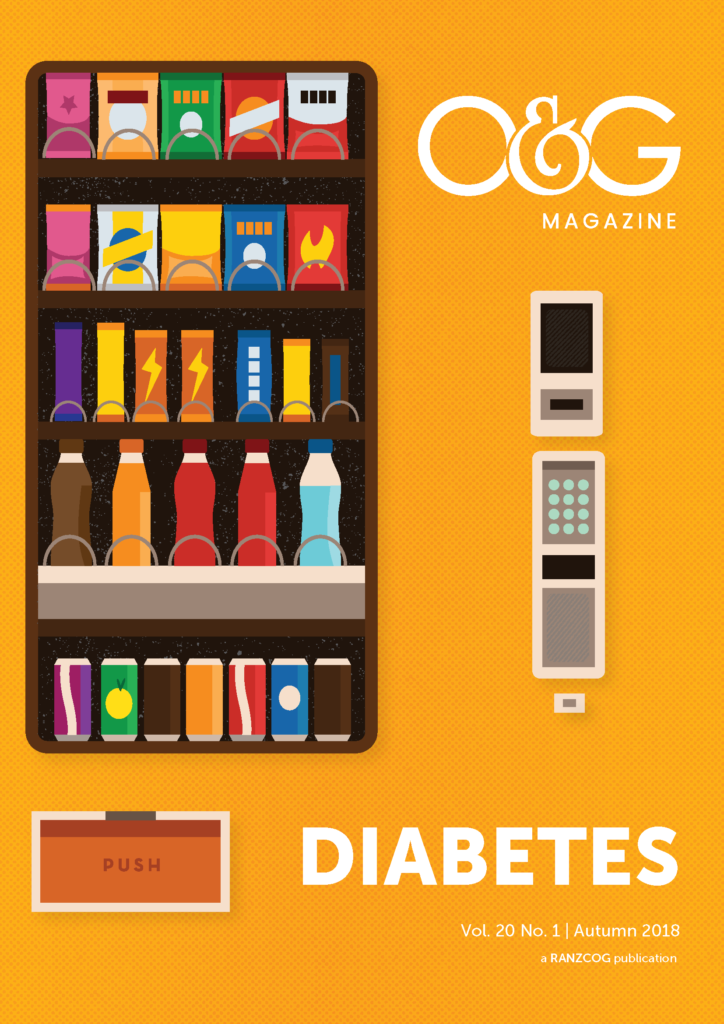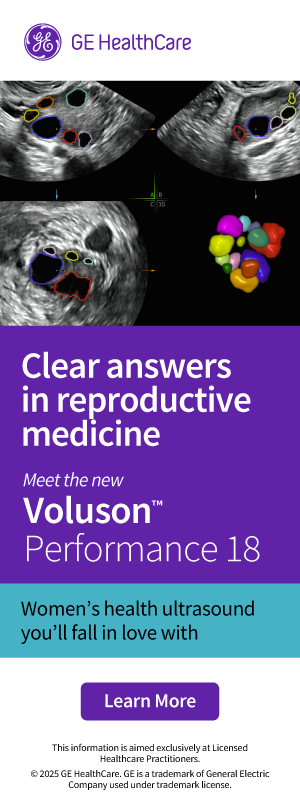Migration-related factors are recognised as social determinants of health.1 Conditions surrounding migration and resettlement may exacerbate health inequities, exposing women and their families to increased health risks and poorer health outcomes. The Australian Bureau of Statistics estimates that there are more than three million overseas-born women in Australia and about 460,000 of them reported that they do not speak English well or at all.2 It is vital that health providers are equipped with tools to provide person-centred and culturally responsive care that recognises the heterogeneity of individuals within cultures. Our colleges, societies and healthcare settings need to support these endeavours by providing culturally responsive care, with systems that support the engagement of interpreters and facilitate training for all health staff.
In response to this need, the Migrant and Refugee Women’s Health Partnership (MRWHP) was established in late 2016. The Partnership brings together health practitioners and the community to improve the capacity of the Australian healthcare system to provide accessible and appropriate care to women of migrant and refugee backgrounds. The Partnership is driven by the imperative of fostering collaboration and consensus across clinical education, with its work overseen by a working group. The working group is chaired by RANZCOG President Prof Steve Robson and comprises representation from eleven medical colleges, professional bodies for nurses and midwives, other relevant health practitioner representation bodies, government and community.
The Partnership undertakes work in migrant and refugee women’s health through: literature review; scoping of practice; policy and education by medical, nursing and midwifery colleges and societies; and workshops connecting health providers with women from the community.
Health of migrant and refugee women
Women of migrant or refugee background are at increased risk of poor health in pregnancy (such as perinatal mortality, preterm birth and low birth weight).3 Mental health (anxiety, depression and post-traumatic stress disorder)4 and reproductive health are also areas of increased risk for these women.5
Factors contributing to health disparities are multi-faceted, but may include specific risks related to past environments (for example, infectious diseases and anaemia), or specific population-based risks (such as thalaessamia, diabetes, previous female genital mutilation).6 7 8 Many factors, however, relate to broader issues, such as access to care,9 interactions with the health system and health literacy.10
Challenges accessing care include socioeconomic factors, such as visa class, finance, transport and language barriers.11 12 Many women have lower levels of health literacy, lack familiarity with preventative healthcare and have differing personal concepts of health and illness,13 and therefore are more likely to access acute and emergency care.
Resettlement is an overwhelming process involving issues that lead to many migrant and refugee women failing to prioritise their own health. Difficulty adapting to a new culture and language barriers often result in social isolation and exclusion, all of which exacerbate psychosocial risk and vulnerability.14 Women seeking asylum and those from refugee backgrounds, in particular, are at increased risk of poorer health and wellbeing due to both pre-migration experiences, including exposure to trauma, and post-resettlement experiences.
Working with migrant and refugee women
Health practitioners should have the skills to work with women from refugee and migrant backgrounds, being aware of culture, community and past experiences and their influence on women’s expectations for care, health beliefs and behaviours.15 It is particularly important for health practitioners to be aware of the need to provide trauma-informed care, incorporating such factors as patient-centred communication and care, safe clinical environments and knowing when to refer for trauma screening.
Focus should be on supporting the capacity of health practitioners to communicate with migrant and refugee women. These women may have low English proficiency or health literacy and be unable to provide the practitioner with relevant information. They may lack the confidence necessary to be active participants in the process. Individual experiences can impact on women’s knowledge of the healthcare system and their capacity to navigate it. This may include poor understanding of their rights as consumers in the healthcare system. Women may also lack confidence in the healthcare system and need to be assured of the confidentiality between themselves, health practitioners and, if required, interpreters. They may feel more comfortable with female health practitioners and interpreters,16 particularly when disclosing women’s health issues.
When English is the woman’s second language, an accredited interpreter is a vital part of ensuring optimal healthcare. To prevent language discordance and promote effective communication,17 health practitioners must respect the woman’s preference for the interpreter’s gender, ethnicity and dialect.18 When working with an interpreter, reaffirming confidentiality and the right to privacy are particularly important to provide women with the opportunity to disclose sensitive information. Issues may arise, however, if the woman and the interpreter are from the same small, tight-knit community and potentially know each other. In this instance, a telephone interpreter may be a preferable option.
Medical practitioners (general practitioners and medical specialists), as well as nursing and practice support staff, can access the free interpreting service delivered by Translating and Interpreting Service (TIS National) when providing Medicare rebateable services in private practice.19 Clinicians working in state-funded health services can access their service’s respective arrangements for interpreting. It is important to assess the need for engaging interpreters with appropriate credentials and to have systems available to make necessary arrangements through an appropriate language services provider. Not doing so may open the health professional to medico-legal redress.20 This is consistent with the Medical Board of Australia Code of Conduct.21
Strategic response
Culturally responsive practice needs to be embedded in health practitioner education, training and professional development to ensure improved individual client health and wellbeing outcomes.22 MRWHP aims to promote systemic supports, competencies and appropriate resources to support better outcomes for women.
Initial steps undertaken by the partnership include a review of policies and practices developed by the peak medical, nursing and midwifery colleges and societies on the implementation of cultural responsiveness in clinical education. The review was informed by the findings of an extensive consultation undertaken with lead bodies who have responsibility for standard-setting, education and the continuing professional development for health practitioners.
Encouragingly, the report concluded that cultural responsiveness is increasingly considered a core pillar of education and training of health practitioners. A range of initiatives have been developed across curricula, training programs, publications, standards and practice guidelines, and research that could be shared.23 Remaining gaps include insufficient information around how cultural responsiveness is included in core training and professional development, and the level of uptake. Additionally, there is insufficient information on the standards for communicating effectively with patients with low English proficiency and working with interpreters.
MRWHP is working to address these gaps by:
- Identifying strategies to develop the requisite skills, based on the seven domains or roles health providers have as identified by the CanMEDs framework.24 These are: medical expert, communicator, collaborator, leader, health advocate, scholar and professional.
- Exploring ways to evaluate effectiveness and uptake of education across these domains.
- Promoting platforms and ways to share education, training and resources for all health providers.
Responding to the needs of women from migrant and refugee backgrounds requires leadership and collaboration across all the professional and consumer groups in the Migrant and Refugee Women’s Health Partnership. Further information on the Partnership’s work is available at www.culturaldiversityhealth.org.au or by contacting [email protected].
Information about the free interpreting service is available from the Department of Social Services: www.dss.gov.au. Eligible medical practitioners can register to access the free interpreting service at: www.tisnational.gov.au/register.
References
- World Health Organization. Promoting the Health of Refugees and Migrants: Draft framework of priorities and guiding principles to promote the health of refugees and migrants. WHO Secretariat; 2017.
- Australian Bureau of Statistics. Census of Population and Housing. ABS; 2016.
- Higginbottom M, Morgan M, Alexandre M, et al. Immigrant women’s experiences of maternity care services in Canada: A systematic review using a narrative synthesis. Systematic Reviews. 2015;4:13/2 13/30.
- Kirkmayer L, Narasiah L, Munoz M, et al. Common mental health problems in immigrants and refugees: General approach in primary care. CMAJ. 2011;183(12):E959-67.
- Keygnaert I, Guieu A, Ooms G, et al. Sexual and reproductive health of migrants: Does the EU care? Health Policy. 2014;114(2-3):215-25.
- Pottie K, Greenaway C, Feightner J, et al. Evidence-based clinical guidelines for immigrants and refugees. CMAJ. 2011;183(12):E824-E925.
- Correa-Velez I, Ryan J. Developing a best practice model of refugee maternity care. Women and Birth. 2012;25(1):13-22.
- Almeida LM, Caldas J, Ayres-de-Campos D, et al. Maternal healthcare in migrants: A systematic review. Maternal and Child Health Journal. 2013;17(8):1346-54.
- Higginbottom M, Morgan M, Alexandre M, et al. Immigrant women’s experiences of maternity care services in Canada: A systematic review using a narrative synthesis. Systematic Reviews. 2015;4:13/2 13/30.
- Mladovsky P, Rechel B, Ingleby D, et al. Responding to diversity: an exploratory study of migrant health policies in Europe. Health Policy. 2012;105(1):1-9.
- Correa-Velez I, Ryan J. Developing a best practice model of refugee maternity care. Women and Birth. 2012;25(1):13-22.
- Almeida LM, Caldas J, Ayres-de-Campos D, et al. Maternal healthcare in migrants: A systematic review. Maternal and Child Health Journal. 2013;17(8):1346-54.
- 8. Almeida LM, Caldas J, Ayres-de-Campos D, et al. Maternal healthcare in migrants: A systematic review. Maternal and Child Health Journal. 2013;17(8):1346-54.
- Almeida LM, Caldas J, Ayres-de-Campos D, et al. Maternal healthcare in migrants: A systematic review. Maternal and Child Health Journal. 2013;17(8):1346-54.
- Migrant and Refugee Women’s Health Partnership and Australian Migrant Resource Centre. Consultations on access to healthcare for refugee women: Strategies to promote culturally appropriate care and consumer health literacy. MRWHP; 2017.
- Yelland J, Riggs E, Szwarc J, et al. Compromised communication: A qualitative study exploring Afghan families and health professionals’ experience of interpreting support in Australian maternity care. BMJ Quality& Safety. 2016;25:E1
- Yelland J, Riggs E, Szwarc J, et al. Compromised communication: A qualitative study exploring Afghan families and health professionals’ experience of interpreting support in Australian maternity care. BMJ Quality& Safety. 2016;25:E1.
- Gardiner J, Walker K. Compassionate listening: managing psychological trauma in refugees. Australian Family Physician. 2010;39(4).
- Department of Social Services. Free Interpreting Service for Medical Practitioners. DSS; 2017.
- Gardiner J, Walker K. Compassionate listening: managing psychological trauma in refugees. Australian Family Physician. 2010;39(4).
- Medical Board of Australia. Good Medical Practice: A code of conduct for doctors in Australia. MBA; 2014
- Tawara D, Goode M, Dunne C, et al. The evidence base for cultural and linguistic competency in healthcare. National Centre for Cultural Competence. Centre for Child and Human Development, Georgetown University; 2006.
- Migrant and Refugee Women’s Health Partnership. Overview of cultural competence in professional education, training and standard setting for clinicians. MRWHP; 2017
- CanMEDS 2015 Physician Competency Framework is the Canadian national competency based framework for medical training that has been endorsed by 12 national medical organisations, as well as in medicine and other healthcare professions globally.






Leave a Reply